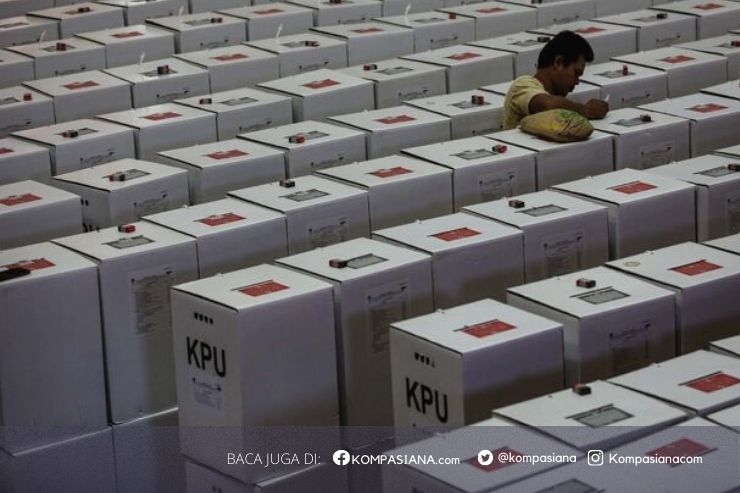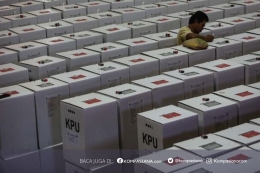Mass Poisoning Incident at a Islamic Boarding School
On a fateful day, the small community of an Islamic boarding school in Indonesia was shaken to its core when dozens of students fell ill due to a suspected case of mass poisoning. The incident highlights the pressing need to address food safety and hygiene practices within these educational institutions, which have a significant role in the country's social and religious landscape. (Rusmanah et al., 2021) (Salim et al., 2022)
Islamic boarding schools, known as "pondok pesantren," are a vital part of Indonesia's educational system, providing religious and character-building education to millions of students. (Rusmanah et al., 2021) However, as the number of these institutions continues to grow, with over 26,000 schools and 4 million students recorded in 2018, the challenge of ensuring proper management and oversight of their operations has become increasingly evident. (Rusmanah et al., 2021)
The recent mass poisoning incident at one of these boarding schools underscores the importance of addressing the unique challenges faced by these institutions, particularly in the areas of food safety and nutrition. (Salim et al., 2022) According to the available information, the students were served contaminated food, leading to a sudden and severe outbreak of food poisoning.
While the exact causes of the incident are still under investigation, it is clear that the issue of food safety and hygiene within Islamic boarding schools needs to be prioritized and addressed. Studies have shown that these institutions often face unique challenges, including limited resources, inadequate infrastructure, and a lack of awareness about proper food handling and preparation practices. (Rihatmadja et al., 2019)
To prevent such incidents from occurring in the future, a comprehensive approach is necessary. This should include, but not be limited to, providing adequate training and resources for kitchen staff, implementing robust food safety protocols, and ensuring regular health check-ups and nutritional assessments for the students. (Salim et al., 2022)
Furthermore, the role of the broader community, including local authorities and religious leaders, cannot be overlooked. By working together to enhance the overall well-being and safety of these educational institutions, the risk of such tragic incidents can be significantly reduced. (Ulinniam et al., 2021)
In conclusion, the mass poisoning incident at the Islamic boarding school in Indonesia serves as a wake-up call for the need to address the pressing issues of food safety and nutrition within these vital educational institutions. By taking a proactive and collaborative approach, the well-being and safety of the students can be safeguarded, paving the way for a brighter future for the country's religious education system.
Another key aspect to consider is the need for improved financial management and administrative practices within Islamic boarding schools. Many of these institutions still rely on manual record-keeping methods, which can hinder their ability to effectively manage their resources and operations. By implementing more robust financial management systems and empowering the school's administration, these institutions can better allocate resources towards enhancing food safety, nutrition, and overall student welfare.
Addressing the systemic challenges faced by Islamic boarding schools is crucial not only for the safety and well-being of their students but also for the broader development of Indonesia's educational landscape. By prioritizing these issues and working towards comprehensive solutions, the country can ensure that these vital educational institutions continue to thrive and contribute to the spiritual, intellectual, and moral growth of the next generation.
Furthermore, the importance of academic supervision and teacher participation in improving the quality of education within Islamic boarding schools cannot be overlooked. Effective academic supervision and the active involvement of teachers in professional development opportunities can help ensure that these institutions are equipped to provide high-quality education and address emerging challenges, such as the issue of food safety and nutrition.
The mass poisoning incident at the Islamic boarding school in Indonesia serves as a stark reminder of the need for a holistic approach to addressing the challenges faced by these educational institutions. By prioritizing food safety, nutrition, financial management, and academic supervision, the country can work towards creating a safer and more supportive environment for the thousands of students who call these boarding schools their home.
Additionally, the role of the government in providing support and resources to these Islamic boarding schools cannot be understated. The government's involvement in funding, policy-making, and regulatory oversight can
play a crucial part in ensuring that these institutions have the necessary infrastructure, resources, and guidance to effectively address the concerns raised by the mass poisoning incident.(Badrudin & Lestari, 2019) (Casmito et al., 2020)
In conclusion, the tragic event at the Islamic boarding school in Indonesia underscores the urgent need for a comprehensive and collaborative approach to address the challenges facing these vital educational institutions. By prioritizing food safety, nutrition, financial management, academic supervision, and government support, the country can work towards creating a safer and more nurturing environment for the students who entrust their educational and personal development to these boarding schools.
The role of community engagement and stakeholder collaboration is also crucial in addressing the challenges faced by Islamic boarding schools. By involving local authorities, religious leaders, and the broader community in the process of improving food safety, nutrition, and overall student welfare, these institutions can leverage the collective resources and expertise needed to drive meaningful change. (Badrudin & Lestari, 2019)
Overall, the mass poisoning incident at the Islamic boarding school in Indonesia serves as a wake-up call for the need to prioritize the well-being and safety of students within these vital educational institutions. By taking a comprehensive and collaborative approach, the country can work towards creating a brighter future for the country's religious education system and the students it serves.
The unique challenges faced by Islamic boarding schools, such as limited resources, inadequate infrastructure, and a lack of awareness about proper food handling and preparation practices, have contributed to the food safety and nutrition issues that have emerged in these institutions. To address these challenges, a multifaceted approach is necessary, one that involves collaboration between school administrators, government agencies, and the broader community. (Ulinniam et al., 2021) (Rusmanah et al., 2021)
While the mass poisoning incident has highlighted the urgent need for action, it also presents an opportunity for the country to enact meaningful reforms and investments to improve the overall quality and safety of Islamic boarding schools. By prioritizing the health and well-being of students, these institutions can continue to fulfill their crucial role in shaping the spiritual, intellectual, and moral development of the next generation of Indonesians.
References
Badrudin, B., & Lestari, A. S. (2019). Aspects of Islamic Boarding School Financing Based on Social Agribusiness Entrepreneurship of Al Ittifak Ciwidey Bandung. https://doi.org/10.2991/icream-18.2019.3
Casmito, Rifai, R. A., & Harlanu, M. (2020). The Effect of Academic Supervision and Teacher Participation in Subject Teacher's Meeting on Improving Teacher Performance of Islamic Junior High School. In Casmito, R. A. Rifai, & M. Harlanu, Proceedings of the International Conference on Science and Education and Technology (ISET 2019). https://doi.org/10.2991/assehr.k.200620.028
Rihatmadja, R., Miranda, E., Wicaksono, M. M., & Widaty, S. (2019). Why are they hard to treat? A preliminary survey to predict important factors causing persistent scabies among students of religion-affiliated boarding schools in Indonesia. In R. Rihatmadja, E. Miranda, M. M. Wicaksono, & S. Widaty, Dermatology Reports. PAGEPress (Italy). https://doi.org/10.4081/dr.2019.8033
Rusmanah, E., Rahmi, A., Andria, F., & Al-Mahali, J. (2021). Al-Mahali Islamic Boarding School Administration Empowerment through Financial Management in Conformity with Accounting Standards. In E. Rusmanah, A. Rahmi, F. Andria, & J. Al-Mahali, Journal of Community Practice and Social Welfare (Vol. 1, Issue 1, p. 33). https://doi.org/10.33479/jacips.2021.1.1.33-47
Salim, H. M., Choirotussannijah, C., Wulandari, D. D., Handayani, N., & Masitah, D. (2022). Counseling, health check-up, and nutritional status to improve nutritional health at Al-Fitrah Islamic Boarding School. In H. M. Salim, C. Choirotussannijah, D. D. Wulandari, N. Handayani, & D. Masitah, Abdimas Jurnal Pengabdian Masyarakat Universitas Merdeka Malang (Vol. 7, Issue 4, p. 719). Universitas Merdeka Malang. https://doi.org/10.26905/abdimas.v7i4.8199
Ulinniam, Sari, Y., Juliani, N. W. E., Sopwan, I. D., & Yasin, Y. (2021). Self Reliance Health Care Students of Miftahul Huda Islamic Boarding School Indramayu Through Cultivation and Processing of Family Medicinal Plants (Toga). In Ulinniam, Y. Sari, N. W. E. Juliani, I. D. Sopwan, & Y. Yasin, Advances in Social Science, Education and Humanities Research/Advances in social science, education and humanities research. https://doi.org/10.2991/assehr.k.210304.111
Follow Instagram @kompasianacom juga Tiktok @kompasiana biar nggak ketinggalan event seru komunitas dan tips dapat cuan dari Kompasiana. Baca juga cerita inspiratif langsung dari smartphone kamu dengan bergabung di WhatsApp Channel Kompasiana di SINI







